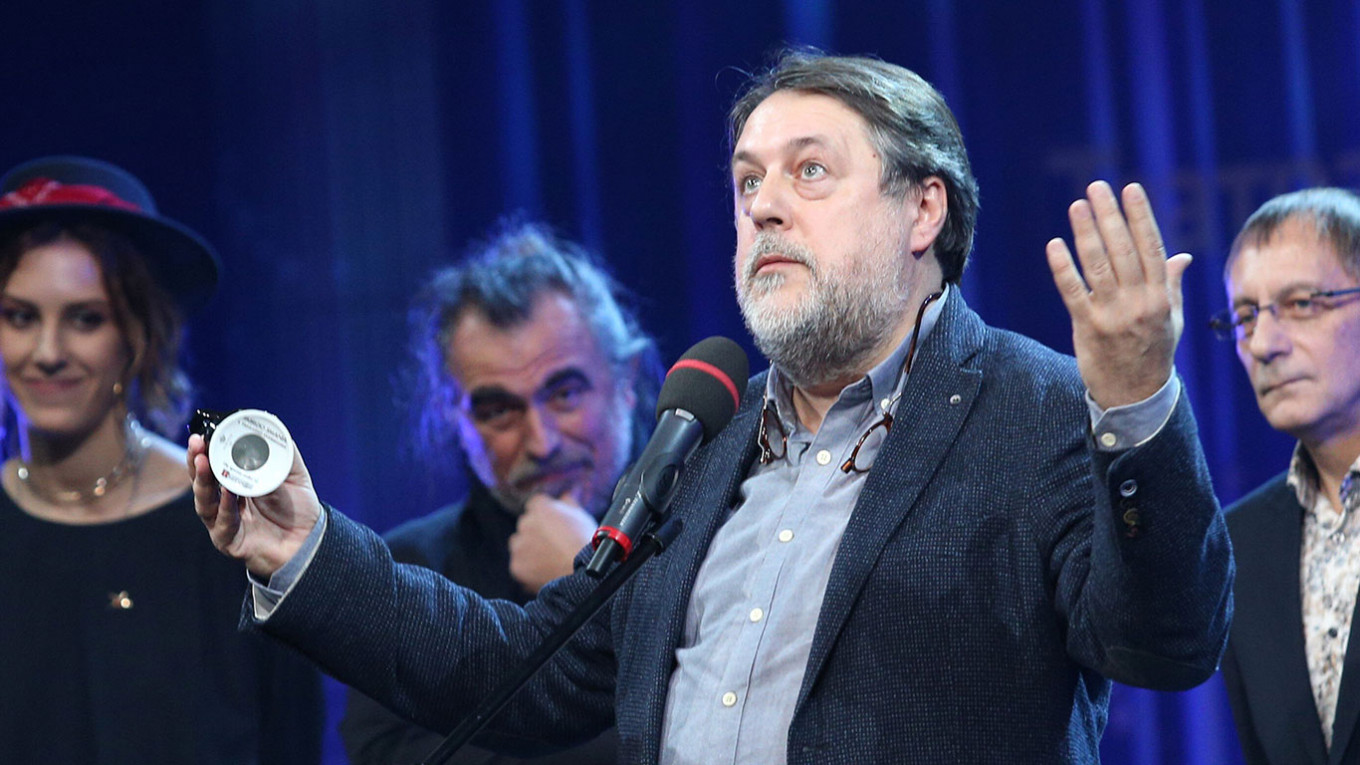The 15th ArtDocFest, Russia’s largest festival of documentary films, ended before it began last night in Moscow.
As Vitaly Mansky, a documentary filmmaker and president of the festival, was about the enter the theater for the opening, he was splashed with paint by protesters from Russian nationalist group SERB (South-East Radical Bloc).
Over the years the group has harassed Mansky for showing films they deemed “anti-Russian.” They have disrupted screenings, assaulted Mansky, and released noxious substances into the theaters.
This year the festival also received a telephone warning that explosives had been placed in the theater.
In a statement this morning Mansky wrote that there wasn’t one incident that the festival “was destroyed by all that is happening in Russia today.”
“This year almost all the films about current events were removed from the program,” he wrote. “Even the festival video and print ads were censored. By the opening day the festival program had been completely censored. The festival was destroyed before it opened, and one way or another it would have been called off on March 31.”
ArtDocFest debuted in 2007 in Moscow and grew over the years to be the largest documentary film festival in the country. The festivals ran for nearly a week and showed films from all over the world in a variety of non-fiction genres, often touching on sensitive issues. As the authorities in Russia cracked down on dissent and protests of unfair elections, the festival became a week-long haven for Russians looking for alternatives to increasingly pro-government television and film fare.
After the annexation of Crimea and start of the war in Donbas, Mansky moved to Riga, Latvia. Since 2018 the main part of the festival has been held in Riga and then shown in Moscow and St. Petersburg along with a program of non-competition films.
Over the years the Riga festival has expanded as the Russian festival faced more state and state-permitted harassment. If in the past the police charged the activists who disrupted the screenings, this year the person who splashed Mansky with paint was not even detained by theater personnel or police.
Expecting the likelihood of problems in Moscow, the festival organizers had announced ahead of time that if the screenings did not take place, ticket-buyers would have access to the films online.
Later on what would have been the opening night of the festival, Mansky put on his Facebook page a short video that he filmed in a Moscow apartment kitchen. With friends around a table laden with take-out sushi and shot glasses, he said, “Consider this the opening banquet for the ArtDocFest in Moscow – it’s being held in a kitchen in the best Soviet tradition — because freedom in Russia does not extend beyond the kitchen. But at least we can think and drink to the opening and closing of ArtDocFest.”
The festival has been halted in Russia, but not closed permanently. “We will return to a free and democratic Russia,” Mansky wrote in his address to viewers. “We believe that.”
For more information about the festival and to see this year’s films, see the ArtDocFest site.
A Message from The Moscow Times:
Dear readers,
We are facing unprecedented challenges. Russia's Prosecutor General's Office has designated The Moscow Times as an "undesirable" organization, criminalizing our work and putting our staff at risk of prosecution. This follows our earlier unjust labeling as a "foreign agent."
These actions are direct attempts to silence independent journalism in Russia. The authorities claim our work "discredits the decisions of the Russian leadership." We see things differently: we strive to provide accurate, unbiased reporting on Russia.
We, the journalists of The Moscow Times, refuse to be silenced. But to continue our work, we need your help.
Your support, no matter how small, makes a world of difference. If you can, please support us monthly starting from just $2. It's quick to set up, and every contribution makes a significant impact.
By supporting The Moscow Times, you're defending open, independent journalism in the face of repression. Thank you for standing with us.
Remind me later.






